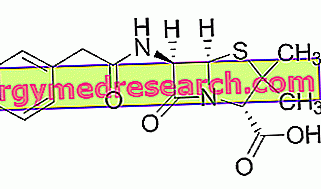Definition
The burning mouth syndrome is a disorder characterized by a widespread oral burning, in the absence of obvious local lesions or systemic pathological changes.
The incidence of the disease is greater than 50 years and in women.
The causes of the disease are not clear yet, but recently some neuropathological disorders have been identified that could predispose to the onset of the disorder. These include the degeneration of oral peripheral trigeminal fibers, the alteration of perceptive taste mechanisms and the loss of central inhibitory mechanisms on pain control.
The burning mouth syndrome is frequently observed in association with psychosomatic disorders, impaired function of the salivary glands (with qualitative and quantitative changes in saliva) and changes in the estrogenic structure (as occurs in the post-menopausal period).
Most common symptoms and signs *
- Bitter mouth
- Dry mouth
- Burning to the tongue
- Burning in the mouth
- Dysphagia
- dysgeusia
- Hypoaesthesia
- Paresthesia
- Mouth Metal Flavor
Further indications
The main symptom of burning mouth syndrome is the burning of the oral cavity in the absence of obvious causes, such as mucosal lesions and specific systemic diseases (eg diabetes, thyroid disease, allergies, anemia, multiple sclerosis, nutritional deficiencies, alterations) hormonal associated with menopause etc.).
This burning sensation is generalized to the whole oral mucosa or is felt locally at the level of the tongue (especially the back and the tip), palate, lips, surfaces in relation with mobile prostheses or floor of the mouth.

The symptomatology of the burning mouth syndrome manifests itself with variable gravity (from mild to moderate) and can arise in a sudden or gradual manner; some patients complain of constant discomfort, in others the sensation has a fluctuating trend with temporary remissions coinciding with meals, sleep or activities that distract attention. In many cases, the picture occurs in the late morning and reaches its maximum intensity in the late afternoon or evening, then disappearing at night.
Other symptoms may be associated with burning mouth syndrome, such as paresthesia and a dulling sensation at the tip of the tongue; altered taste sensitivity (eg perception of a bitter or metallic taste); pain, dry mouth and / or difficulty swallowing. Many patients report descriptions of sensations such as pinpricks, cold palates such as ice or tongue burned by a boiling liquid. The manifestations of burning mouth syndrome can last for months or years.
The diagnosis includes a scrupulous medical history, with particular attention to possible factors capable of inducing xerostomia and / or oral burning, such as smoking habits or taking certain foods or drugs. The anamnesis is followed by an objective examination aimed at excluding the presence of alterations affecting the oral cavity, correlated or not with systemic pathologies responsible for the burning symptoms.
These tests can be completed by laboratory tests (eg microbiological culture test for Candida research, allergological investigations and saliva analysis).
If it is not possible to establish a specific local and / or systemic organic cause, the treatment is symptomatic and includes the prescription of drugs aimed at reducing chronic pain (eg amitriptyline, carbamazepine, clonazepam and trazodone) and, possibly, an intervention of type psychological for forms on a psychosomatic basis.
To reduce the discomfort associated with burning mouth syndrome, it is recommended to drink water frequently, to keep the mucous membranes moist, and to avoid irritating substances (such as spicy or very hot foods, alcohol-based mouthwashes, lemon juice and carbonated drinks).



